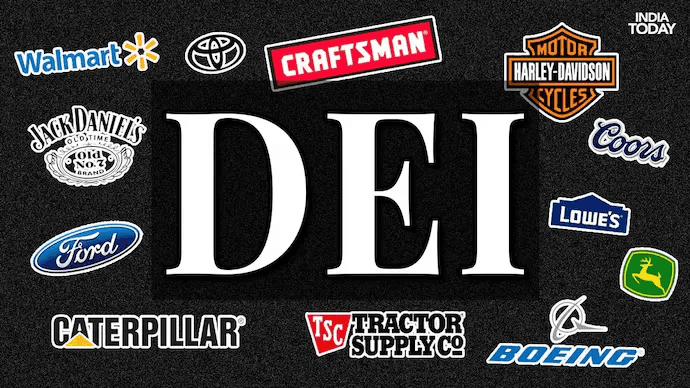The Implications of a Sea Change in Corporate Diversity Initiatives
Companies are retreating from diversity, equity, and inclusion (DEI) initiatives due to mounting legal, political, and social pressures.
Limbik Team
Jan 8, 2025
Bottom Line
Companies are jettisoning their diversity, equity, and inclusion (DEI) initiatives as a result of a combination of mounting pressures—legal, political, economic, and socio-cultural.
The bet that many of these companies are making by pulling back from these initiatives is that demographic data does not matter when it comes to hiring and that a focus solely on the bottom line, or business interests, will be enough to keep consumers engaged.
The pressure has pushed companies to reverse course and announce that they will no longer pursue hiring practices that prioritize marginalized groups, and many are suggesting that they will no longer focus on “non-business activism,” which is a broad term implying no consideration for racial equity, human rights, or lesbian, gay, bisexual, transgender, queer (LGBTQ+) rights and concerns.
Background
Companies are jettisoning their diversity, equity, and inclusion (DEI) initiatives as a result of a combination of mounting pressures—legal, political, economic, and socio-cultural. Major multinational corporations (MNCs), including McDonald’s, Walmart, Ford, Lowe’s, and others are reconsidering how they approach issues related to DEI, as well as stances on race, gender, and sexual orientation. In short, many companies are pulling back, which calls into question how sincere (or insincere) they were about these initiatives in the first place.
In explaining its shifting position, McDonald’s—similar to some other high-profile MNCs—referenced the 2023 U.S. Supreme Court (SCOTUS) ruling on affirmative action in college admissions, which found that race cannot be considered as a factor. There is also a growing sense that with President-elect Donald Trump returning to office, companies are being proactive in molding their policies to reflect what they believe the Trump Administration will favor and eschewing those policies they believe are antithetical to the incoming administration’s worldview, possibly with the belief that companies misaligned with Trump’s viewpoint could be subject to fines and other penalties.
Right-wing influencers, media personalities, and politicians made ‘anti-wokeness’ into a cause célèbre of sorts, pushing back against progressive policies on race and other sensitive areas that were addressed in the wake of the murder of George Floyd and the coronavirus pandemic.
Corporate Risks
One of the most obvious and immediate corporate risks is a backlash from employees and elements of the consumer base who were in favor of DEI initiatives and began identifying with the brand in question. The bet that many of these companies are making by pulling back from these initiatives is that demographic data does not matter when it comes to hiring and that a focus solely on the bottom line, or business interests, will be enough to keep consumers engaged.
For some consumers, the public pronouncement that a company is distancing itself from social or cultural awareness, diversity quotas, and pronoun identification will be what brings them back to the brand, including companies like John Deere and Tractor Supply, which were explicit in their pronouncements.
There has also been immense pressure applied by Conservative activists and civil society groups. Anti-DEI crusader Robby Starbuck has been claiming credit for McDonald’s decision to abandon its DEI priorities, posting recently on X, “As our first corporate flip of 2025 I just want to say, HAPPY NEW YEAR!” It is not hard to imagine so-called activists like Starbuck becoming emboldened by their perceived success in pressuring companies to officially change their policies, thus leading others to follow suit. There are also inherent risks with companies which are perceived to be currying favor with the current zeitgeist, moving with cultural whims, rather than committing to principles that define and reflect their respective brands.
Implications
The pressure has pushed companies to reverse course and announce that they will no longer pursue hiring practices that prioritize marginalized groups, and many are suggesting that they will no longer focus on “non-business activism,” which is a broad term implying no consideration for racial equity, human rights, or lesbian, gay, bisexual, transgender, queer (LGBTQ+) rights and concerns. This could very well be a major morale blow for employees within the companies who care about these issues, to say nothing of their broader consumer base.
For some companies that seek to abandon DEI initiatives, they reached the decision following what they perceived as unacceptable backlash to adopting these policies in the first place—boycotts, protests and demonstrations, and increasingly negative consumer sentiment, including online vitriol and accusations of “surrendering to the woke mob.” Some companies may explain their decisions in terms of finances, calling them mere cost-cutting measures or simple rebranding. A number of companies have decided to leave behind previously-stated commitments to the Human Rights Campaign Foundation Corporate Equality Index, including Harley-Davidson, Molson Coors, Brown-Forman and several others aforementioned in this analysis.
In the current political environment—highly polarized and hyper-partisan—it can be difficult, if not impossible, for companies to focus on purely business interests, since so often they are inextricably linked with a company’s identities and values. When these values are viewed as fleeting or changing on a whim, it can be counterproductive, a myopic move to capitalize upon short-term trends while failing to consider the longer-term impact of abandoning employee-friendly policies or downplaying or ignoring civil and human rights in exchange for profits.





